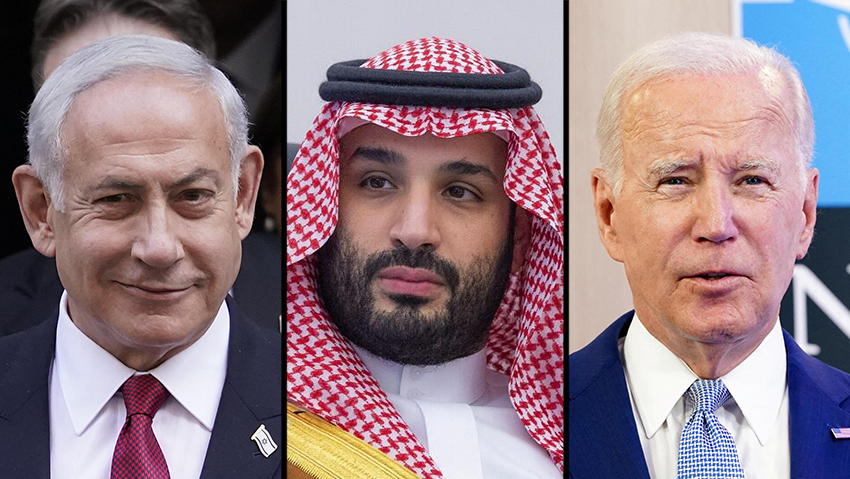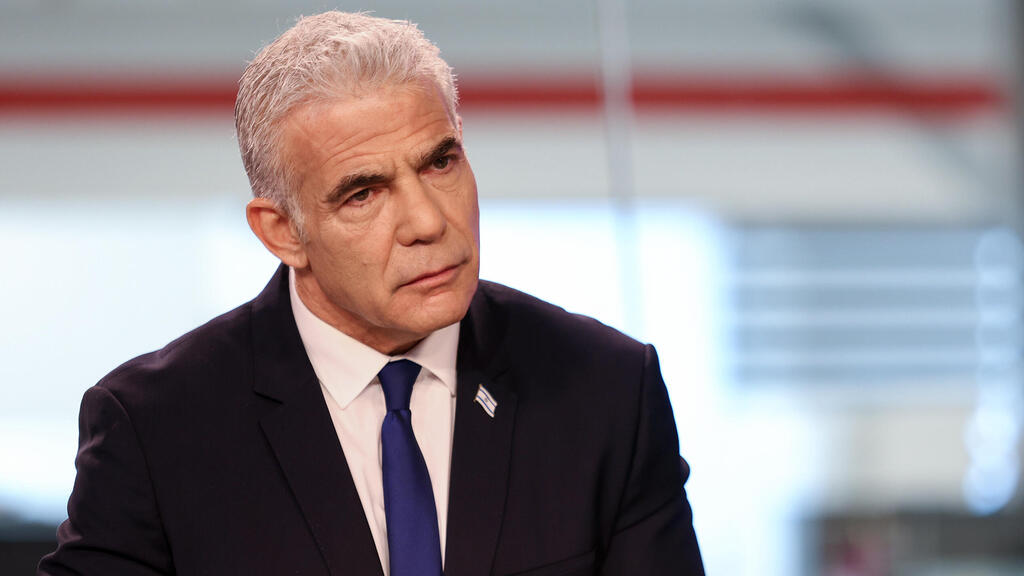Getting your Trinity Audio player ready...
COMPLEX DIPLOMACY: SAUDI NORMALIZATION, SHIFTING ALLIANCES, IRAN NUCLEAR TALKS
(ILTV)
Senior American officials said the chances of reaching a U.S. -Saudi- Israel deal are still low, and estimate them at 30%-35%. "This is very complex, the way there, is long and the Palestinian issue will be the last to be agreed," they said noting that the first items that must be resolved are the matter of a civilian nuclear power program and a defense agreement, and only then, the Palestinians. "But they will have to be given something."
Read more:
The officials told Ynet that the discussion with Iran over an unwritten nuclear agreement had been going on for the past 18 months. "The main goal was to bring about the release of American prisoners, [held in Iran]" the officials said. "Netanyahu is concerned that that is the first step towards an agreement or understanding, but the truth is that all the U.S. wanted was the release of the prisoners in exchange for funds that would be used for humanitarian needs. Would that create a better atmosphere to advance other subjects? Yes. But the closer we get to elections, we don't see a return to a nuclear deal," they said adding that some understandings could be reached.
2 View gallery


Benjamin Netanyahu, Mohammed bin Salman, Joe Biden
(Photo: Kevin Lamarque / AP, Reuters)
The sources also rejected Netanyahu's criticism of the deal with Iran, in which unfrozen accounts could be used to fund terrorism, and said the U.S. would do all that was necessary to ensure that does not happen. "But money is money and you can never know.
In their conversation with Ynet, the officials said U.S. President Joe Biden wants to advance a deal with Saudi Arabia, one that would be hard to enlist Democratic support for, although Biden may use his full force, to achieve it. "We would need Republican support, but we believe that since Prime Minister Benjamin Netanyahu really wants this deal, he will be helpful in the matter," they said. Netanyahu is expected to meet with Biden on the sidelines of the UN General Assembly in September.
The officials said that the administration was surprised by Opposition Leader Yair Lapid's criticism of the Saudi deal and said the tables have turned. "When Netanyahu was in the opposition, he criticized the agreement with Lebanon, signed by Lapid, a criticism he did not repeat once he was back in power. Now Lapid who is in the opposition, is criticizing a possible deal with the Saudis because he does not want the win, to go to Netanyahu," they said.
On Saturday, the Prime Minister's Office (PMO) responded for the first time, to the agreement with Iran and criticized the administration. "Israel's position is known. This arrangement does not dismantle Iran's nuclear infrastructures and halt its nuclear program and provides it with funds that will be directed for terror by proxies.
The unwritten understanding with Iran is meant to block Tehran's rush to enrich uranium to a level that would allow it to possess a nuclear weapon within a short period of time, in exchange for some economic benefits that the U.S. would allow, to ease some of its financial difficulties. It also contains other matters that would restrict arms shipments to Russia, limit the Iranian attacks on Oil tankers in the Persian Gulf and prevent attacks on U.S. military and civilians in Iraq and elsewhere in the Middle East by proxies, especially the Shi'ite militias in Iraq, Syria and Yemen.






